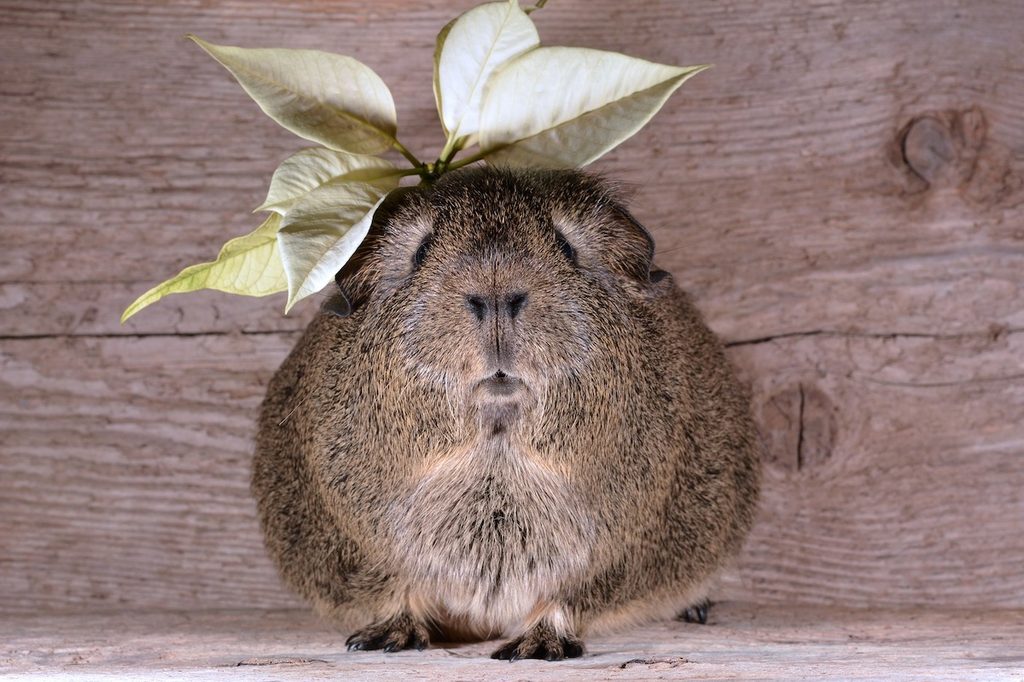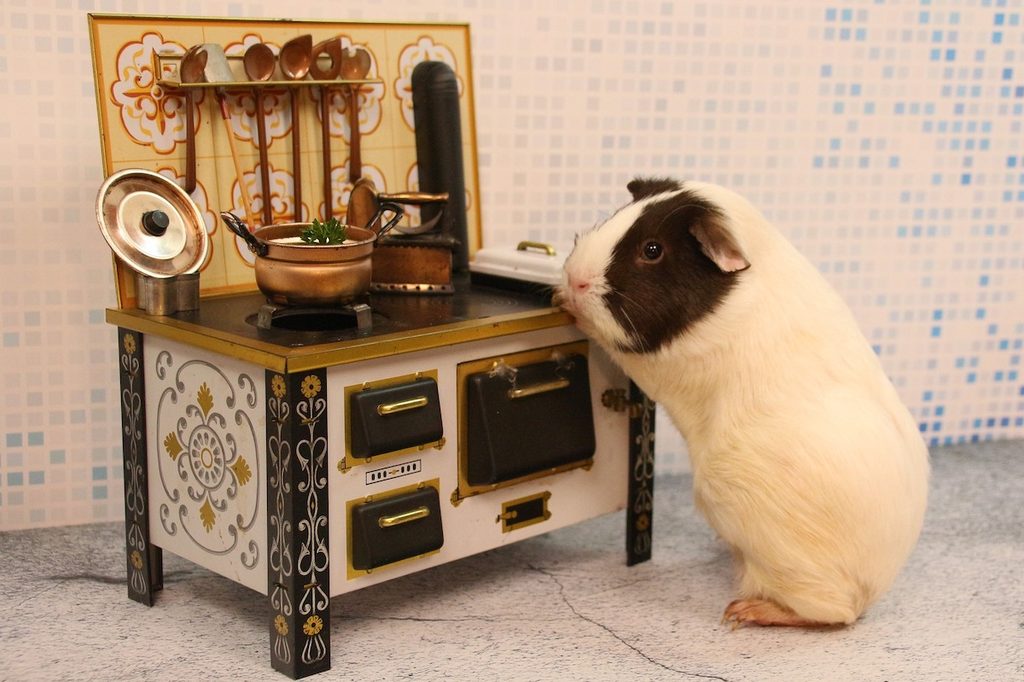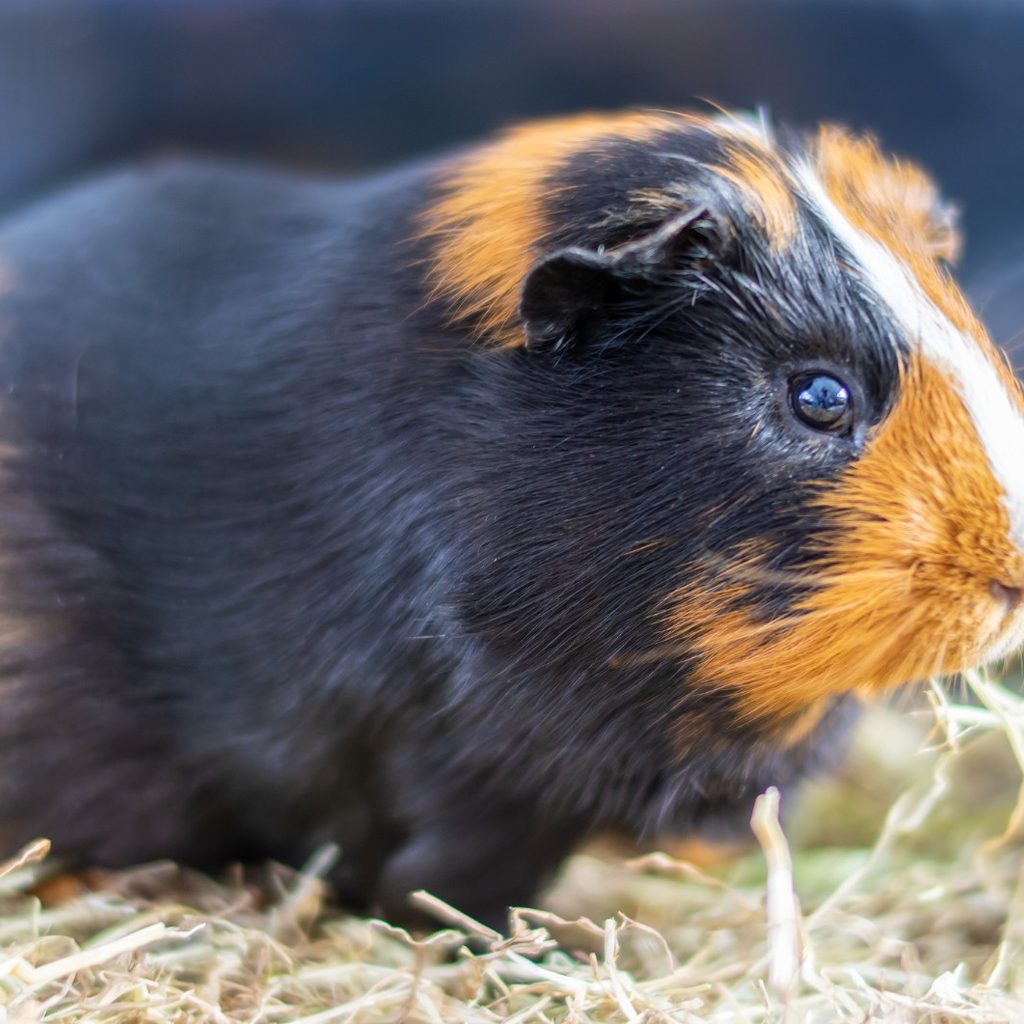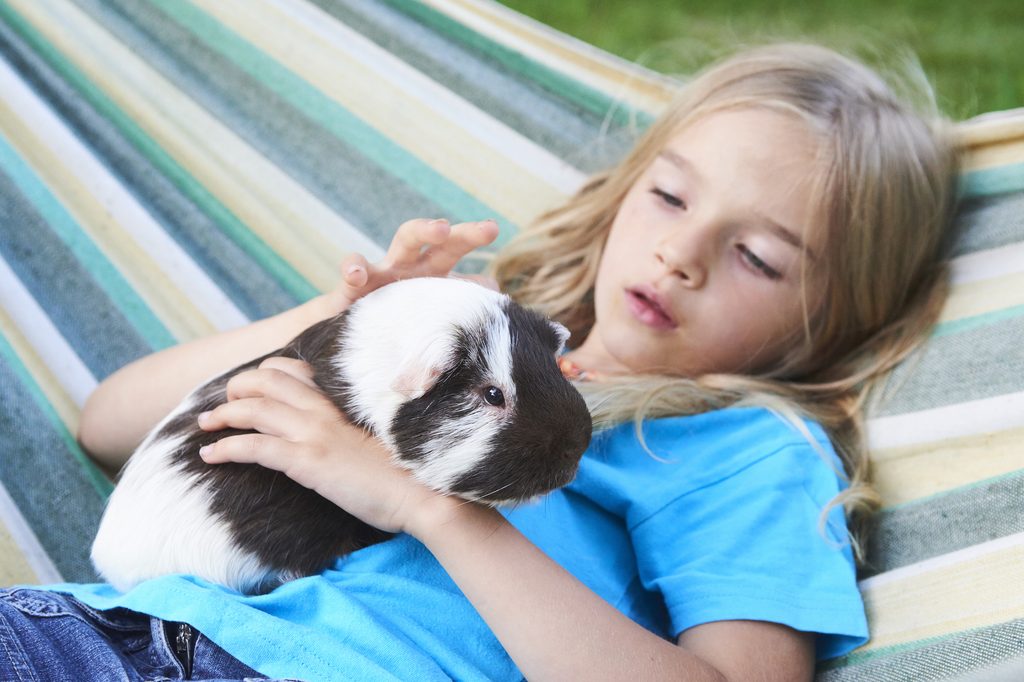
When choosing the right pet for you, the first question you might ask is how many years of enjoyment you can expect from them. It is a great question, but the answer can vary depending on the animal. So how long do guinea pigs live? Read on for the answer — and how to help increase your little pig’s lifespan.

How long do guinea pigs live?
It is important to note that a guinea pig is not a hamster. A lot of pet owners do not know the difference and think these animals have similar life expectancies. However, they are actually quite different! There are several breeds of hamsters and this can affect how long they live, but a normal hamster can live for two to three years depending on how they are treated.
Guinea pigs, on the other hand, live much longer and grow to a much larger size. How long do guinea pigs live? The average lifespan for a domestic guinea pig is five to seven years, and there are many factors that can influence this. It is not uncommon for a guinea pig to live for nine or 10 years if exceptionally cared for. This means cavies require a long-term commitment on your part.

Ways to increase a guinea pig’s life expectancy
Fresh food: As with any living creature, providing your guinea pig with fresh food is one of the best ways to increase life expectancy. Make sure that uneaten food, like greens, is removed from the cage within 24 hours so your guinea pig doesn’t eat food that is no longer fresh.
Purchase a comfortable cage: Just like humans, guinea pigs like to be comfortable, too! A good recommendation is to provide at least 7.5 square feet for one guinea pig and 10 square feet of living space for two guinea pigs. The more space you provide them, the happier your guinea pigs will be.
Absorbent guinea pig bedding: Kiln-dried pine shavings, paper bedding, or fleece are a few suitable options to choose from. In addition, it is important to change guinea pigs’ bedding on a schedule so you can prevent odor or ammonia build-up. It is recommended that you change bedding at least once a week, but every three to four days is better.
Provide materials to chew on: In order to stay healthy, pigs need to keep their teeth ground down. Therefore, make sure that you buy your furry friend chew toys or pet-safe wood blocks.
Do not allow females to become pregnant: The pregnancy and birthing process is hard on female guinea pigs. In fact, one in five females that are bred will die as a result of complications during pregnancy or birth.
Locate a good veterinarian: It is important that you be proactive and find a good vet before your guinea pig has a medical issue. Even though guinea pigs do not require any vaccinations, it is recommended that you bring them to a veterinarian at least once a year.
Don’t mix pairs: Getting more than one guinea pig is a great way to increase longevity for guinea pigs. Just like humans, guineas are sociable and enjoy having a community around them. Nevertheless, make sure to keep guinea pigs of the same sex together or pairs that have already been spayed and neutered. As mentioned before, it is not good to have an unplanned guinea pig pregnancy in your household.

Can guinea pigs live alone if one dies?
As you can see, getting a guinea pig is a great option if you are looking for a pet with a life expectancy of five to 10 years. You play a role in your pet having a long, healthy life by giving your guinea pig a great house filled with nutritious food and lots of friends. Care for your guinea pig just like you would a young child and you will do fine as a guinea pig parent!



